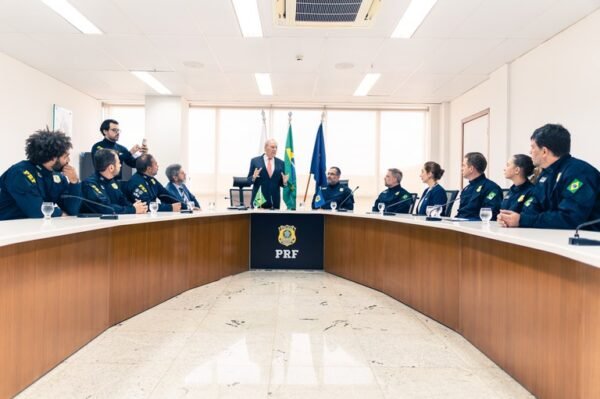The case of the young woman shot on Christmas Eve during a Federal Highway Police (PRF) stop in Duque de Caxias, in Baixada Fluminense, led the Minister of Justice, Ricardo Lewandowski, to speed up the regulation of the decree that deals with the use of force by the country’s police. On Tuesday (24/12), the decree of the Ministry of Justice was published, which determined that security agents may only resort to the use of force when other less intense resources are not sufficient. Likewise, firearms should only be used as a last resort.
This Content Is Only For Subscribers
To unlock this content, subscribe to INTERLIRA Reports.
Regulation
The deadline to regulate the decree with the details of the procedures is 90 days. But Lewandowski had already expressed his intention to do so in January. With the episode on Christmas Eve, the minister revealed internally that he intends to speed up the regulation even further. Lewandowski also intends to transform the PRF into a federal ostensive police force with the possibility of operating on waterways as well. The idea is to include the change in the rules of operation of the corporation in the Proposed Constitutional Amendment (PEC) for Public Security, to be sent to Congress next year.
Shot on Christmas Eve
Juliana Leite Rangel, 26, was going with her family to spend Christmas at a relative’s house in Itaipu, in Niterói, when the vehicle was targeted by shots fired by federal highway police officers in Duque de Caxias, in Baixada Fluminense. The PRF approached around 21:00. Juliana’s father, Alexandre da Silva Rangel, 53, was shot in the left hand. He stated that the PRF agents shot at the car while he was trying to pull over. According to him, the officers also accused him of having fired shots.
Impasse between Governors
The decree issued by the Ministry of Justice on the use of force by police officers throughout the country has become yet another impasse between the federal government and opposition governors in the area of public security. It has also been criticized by the head of the governor of Rio, Cláudio Castro (PL); of Goiás, Ronaldo Caiado (União Brasil); and the Federal District, Ibaneis Rocha (MDB). The governors’ criticisms revolve around the financial transfers to the states. Although the measures in the decree are not mandatory, they will serve as a condition for the transfer of funds from the National Public Safety Fund (FNSP), mainly for the acquisition of equipment. In this way, the government intends to ensure that the rules are implemented by the 27 states.
Increase in violence
According to the decree, the government will offer training on the use of force for public safety professionals, who will be required to complete training yearly. The Ministry of Justice and Public Security will also be responsible for formulating, implementing, monitoring, and evaluating actions related to the use of force, including diagnostics, standardization of procedures, doctrine, training, and acquisition of equipment, among other aspects for all security forces in the country. The creation of rules for the use of force occurs amid episodes of abuse committed by some military police officers in São Paulo. Two of them ended up being arrested and another 45 were removed from the streets.
National Public Security Fund
In 2025, the Ministry of Justice will transfer R$1.1 billion to the states of the National Public Security Fund (FNSP), in just one of the modalities — the total, in all modalities, will reach R$2.5 billion. In 2024, the budget was R$2.6 billion. São Paulo is the state that is expected to receive the largest volume of fund-to-fund transfers: R$48.3 million. Next comes Minas Gerais (R$45.5 billion); and Bahia, Rio de Janeiro, Pará, and Rio Grande do Sul, with R$45 million each. The FNSP is the main instrument for financing public security in Brazil.
Analysis:
The fatal shooting during a Federal Highway Police (PRF) stop in Baixada Fluminense highlights a key challenge in Brazilian public security: excessive use of force by law enforcement. In response, Justice Minister Ricardo Lewandowski accelerated the regulation of a decree on the use of force, aiming to align police practices with international human rights standards, such as proportionality and the use of firearms only as a last resort. The decree represents progress by limiting lethal force to situations where alternatives are insufficient and includes plans to expand the PRF’s role into federal and waterway policing, provided it is supported by rigorous training and intelligence investments to prevent abuse.
However, the decree has sparked opposition from governors like Cláudio Castro and Ronaldo Caiado, who object to linking compliance with the rules to funding transfers from the National Public Security Fund (FNSP). While this conditionality could drive states to adopt best practices, it also underscores tensions between federal and state governments in public security management. These financial dependencies may encourage implementation but risk political resistance that could hinder effective enforcement of the new guidelines.
Sources: A Folha de SP [1], [2], [3]; O Globo [1], [2], [3]; G1.




